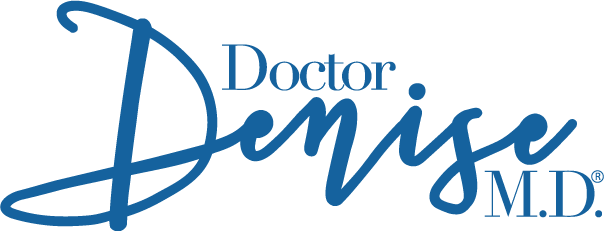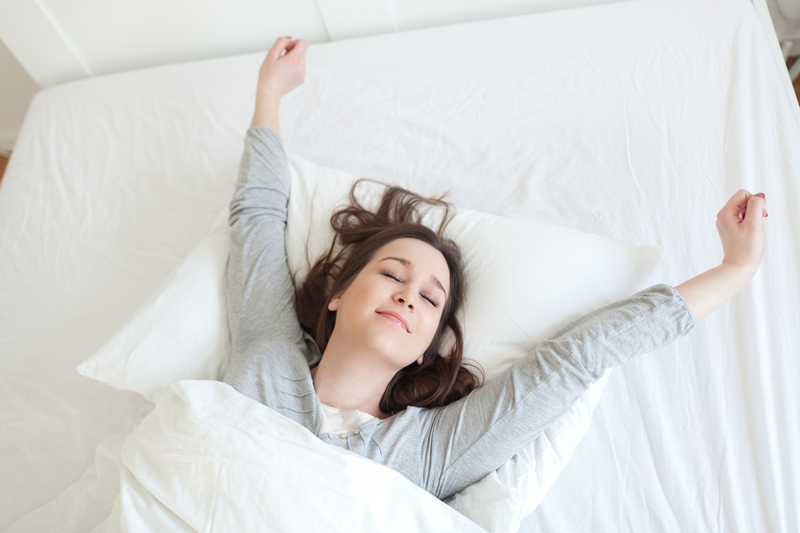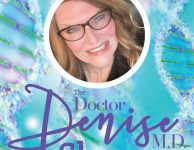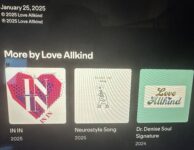Mental Health & The Importance of Sleep
“Psychiatrists and psychologists were like our version of superheroes,” a comment Ilana Glazer, actress, comedian, and previous student at NYU made about her experience with the CAMS (Child and Adolescent Mental Health Studies) program. As Vice Chair for Education and Professor of Child & Adolescent Psychiatry and Pediatrics at the NYU School of Medicine, Dr. Jess P. Shatkin has contributed significantly to child psychiatry and is a true visionary in mental health education. As Founder and director of the nation’s largest undergraduate child development program, CAMS, he is leading the way in integrating tangible, engaging curriculum for our college students. During the podcast this week he discusses the wide variety of classes that students can take at NYU while enrolled in the CAMS program on topics such as sleep, divorce, positive psychology and more! This is an example of an integrative mental health education curriculum that can have a life long ripple effect of tips and tools for wellbeing and hopefully attract some bright minds into working with children as educators, psychologists, psychiatrists or other mental health providers.
Why is it so important to encourage our youth to be aware of the importance of mental health and hopefully recruit them into the field?
We are experiencing a crisis in the ability to provide the mental healthcare for our children and there is a shortage of child psychiatrists in the USA. According to the American Academy of Adult and Child Psychiatry, there are approximately 8300 practicing child and adolescent psychiatrists in the United States- and over 15 million youths in need of one. I have worked > 40,000 patient hours since finishing my child psychiatry fellowship at UCLA in 2001, and I can let you know firsthand that being at the front line of mental health care is eye-opening.
Did you know that 70-80% of lifelong mental health issues begin in childhood?
I believe that all of the current practicing child psychiatrists need to “step up” to inspire, contribute, and collaborate on the mental health crisis that we are facing at this time in history. It is vital that we as a society embrace, integrate and encourage our children to strive for inner peace, happiness and wellbeing starting as early as possible. Why? Being educated and empowered about your mental health is vital for happiness.
When individuals thrive, we all thrive.
Dr. Shatkin has started a “Mental Health Revolution” at the undergraduate level and he will be leading a consortium this fall in which other universities will model their programs after the NYU CAMS program.
Are you ready for an example of a CAMS course?
Dr. Shatkin teaches a sleep course at NYU entitled “While you were sleeping” where students learn about the science of sleep, hygiene, evolution and dreams and how getting better sleep can help reduce depression and anxiety. How cool is that class? It is practical, real & engaging. Cynthia Haddad, who took the course in the summer of 2013 told the HuffPost, “I learned basically everything about sleep. We learned how it affects our bodies. We learned about how sleep affects us in our waking hours- the brain, body, emotionally. I learned the following and try to keep to these rules: Do not use devices up to an hour before bed; no caffeine past noon; and use the bed only for sleep and sex-so that when you get into bed, your body knows it wants to sleep.”
Data is key in making recommendations of what works and does not work when modifying behavior. In 2014, Dr. Shatkin and his colleagues compared sleep quantity and quality between NYU students taking his course and those not. Students in Dr. Shatkin’s class slept 22 minutes longer on average per night after two months into the course and fell asleep 9 minutes faster! Dr. Shatkin presented his data at the annual AACAP meeting (American Academy of Child and Adolescent Psychiatry) and discussed how his study also showed that better sleep hygiene is associated with fewer depressive symptoms and less anxiety!
A great way to understand your (or your child’s) sleep pattern is to keep a sleep log to share with your doctor, which you can download at: http://yoursleep.aasmnet.org/pdf/sleepdiary.pdf
The American Academy of Sleep Medicine recommends 7 or more hours of sleep for an adult.
As of June 13, 2016 The American Academy of Pediatrics (AAP) has issued a Statement of Endorsement supporting the American Academy of Sleep Medicine (AASM) guidelines outlining recommended sleep duration for children from infants to teens. The consensus group recommends the following sleep hours:
- Infants 4 months to 12 months should sleep 12 to 16 hours per 24 hours (including naps) on a regular basis to promote optimal health.
- Children 1 to 2 years of age should sleep 11 to 14 hours per 24 hours (including naps) on a regular basis to promote optimal health.
- Children 3 to 5 years of age should sleep 10 to 13 hours per 24 hours (including naps) on a regular basis to promote optimal health.
- Children 6 to 12 years of age should sleep 9 to 12 hours per 24 hours on a regular basis to promote optimal health.
Teenagers 13 to 18 years of age should sleep 8 to 10 hours per 24 hours on a regular basis to promote optimal health.
Prevention, wellness and early intervention are crucial for mental health for our children. We spend 1/3 of our life sleeping. Can you imagine if all of our pediatricians, parents and educators were educated and encouraged children to focus on sleep hygiene at a very young age?
Adequate sleep, nutrition, exercise and meditation can prevent many trips to the doctors office.
I tell my patients that my goal is for you to spend the least amount of time in a doctor’s office and on no medication or the least amount needed.
Here are some “Sleep Tips”:
- Regulate your sleep rhythm with a regular wake up and bed time.
- Eliminate or do not have caffeine after noon each day.
- Avoid or minimize alcohol use.
- Do not use electronic devices one hour before bed.
- Try to exercise no later than four to five hours before going to bed as it raises your body temperature which can make it difficult falling asleep (if you are exercising before bed and are having no difficulty falling asleep-keep exercising!)
- Use your bed for sleep or sex only.
Thank you Dr. Jess Shatkin, you are truly an inspiration to all of “US”! Your superhero cape is on its way to NYU.
Now – let’s start sleeping better!
Dr. Denise



